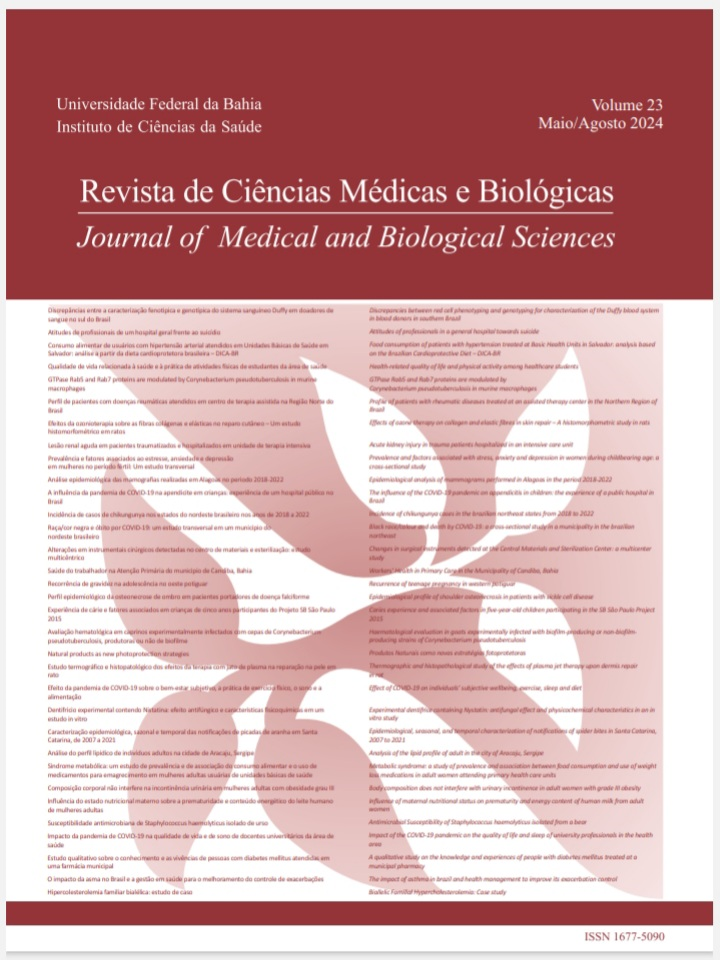Influência do estado nutricional materno sobre a prematuridade e o conteúdo energético do leite humano de mulheres adultas
DOI:
https://doi.org/10.9771/cmbio.v23i2.54884Keywords:
Predominant Breastfeeding. Nutrition Assessment. Milk Bank. Maternal Nutrition. Premature.Abstract
Introduction: Breast milk is a unique food that offers nutritional characteristics and immune factors that cannot be replaced by any other type of milk. Objective: To evaluate the relationship between nutritional status and gestational age and the energy value of human milk from adult nursing mothers. Methods: This is a cross-sectional study, with a sample of 40 nursing mothers. Data collection took place between September and December 2020, through interviews, anthropometric assessment and dietary survey. The energy content of human milk samples was determined using crematocrit. Results: A high percentage of overweight and obese women was observed, as well as excessive weight gain during pregnancy. Nursing mothers whose milk produced had a higher energy value had a higher median weight gain. In addition, there was an association between BMI at the end of pregnancy and maternal body fat with prematurity. Pregestational BMI was higher in mothers of preterm infants. Conclusion: Excessive weight gain during pregnancy was associated with a higher energy value of the milk produced. Pre-gestational obesity and BMI at the end of pregnancy were associated with prematurity.
Downloads
Downloads
Published
How to Cite
Issue
Section
License
Copyright (c) 2024 Journal of Medical and Biological Sciences

This work is licensed under a Creative Commons Attribution 4.0 International License.
The Journal of Medical and Biological Sciences reserves all copyrights of published works, including translations, allowing, however, their subsequent reproduction as transcription, with proper citation of source, through the Creative Commons license. The periodical has free and free access.


